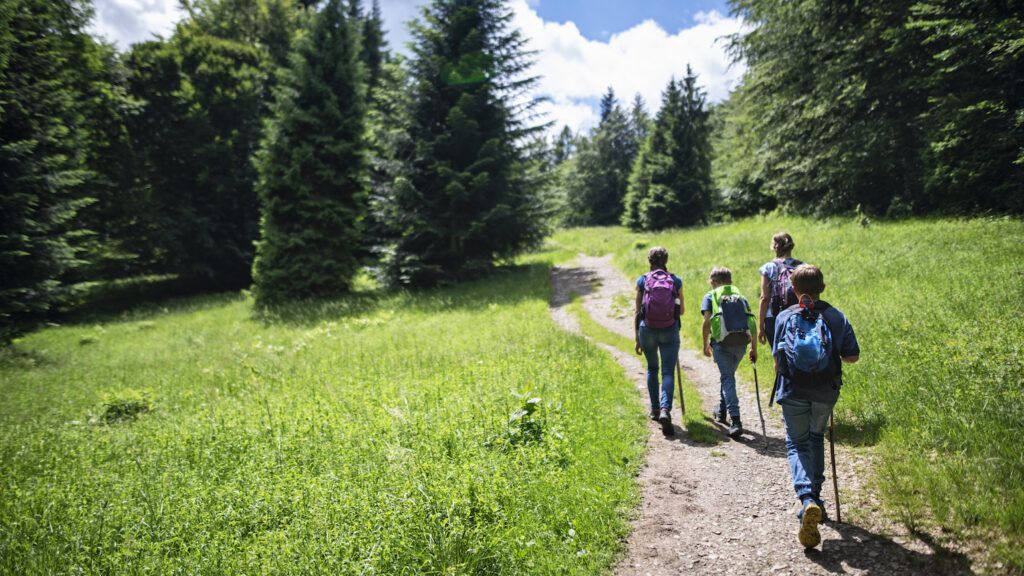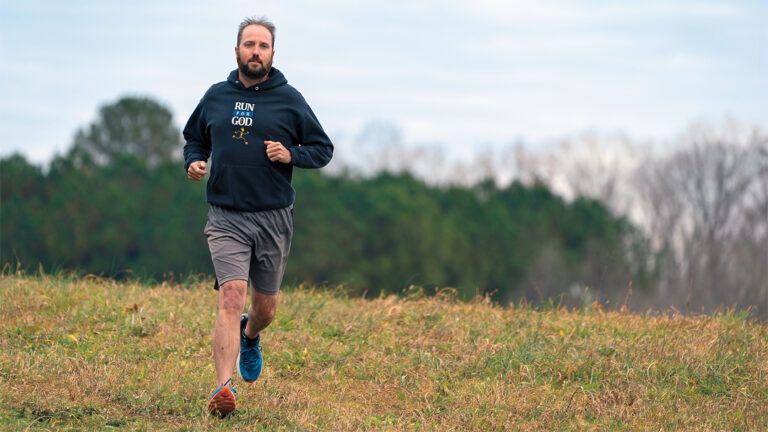Often when my family travels to a natural place like a national park I say to my husband, “While we’re there, I want to make sure we climb a thing.”
By setting this vague agenda, I mean I want to get out into nature and experience any “thing,” usually through a hike. A mountain, a sand dune, a small hill, a thick forest, a seashore, anything that gives me the opportunity to inhabit the place where I am. My desire to hike is the impulse to go, as JRR Tolkien wrote, “there, and back again.”
In addition to being fun and exciting, hiking is healthy. Consider just these five benefits next time you need to be inspired to lace up your boots.
1) Emotional Well-Being
We can’t have physical health without mental health, and hiking delivers on both. Emotionally, a hike challenges us to persevere and follow a path wherever it may lead, it engages our brains in map-reading and trail-following, and of course, being in natural spaces inspires us to feel awe, the sense that there are forces larger than us at work in the world.
2) Osteoporosis and Arthritis Prevention
Walking is a weight-bearing exercise (unlike swimming, which is zero-gravity fitness). The “stress” hiking puts on our joints and bones is actually good for them, according to the American Hiking Society. AHS cites one study that found that women with osteoporosis who walked or hiked one hour three times a week increased bone density in their spines and elsewhere in their bodies by six percent over a nine-month period.
3) Heart Health
Heart disease and high blood pressure are killers in this country, but hiking is a way to build cardiovascular health. A simple walk increases the rate of our breathing, which benefits our hearts and lungs. Hiking on a trail that has some ups and downs increases this effect by bringing our heart rate up and down. Called heart-rate variability (HRV), this phenomenon is linked with better cardiovascular health—and even improved stress management.
4) Strength and Balance
Most of us don’t hike on precarious edges or plunging cliffs. But even a stroll down a gentle wooded path requires us to pay attention to where our feet are landing and to keep our balance when clambering past roots, stones and dips in the landscape. These actions require core and leg strength, which contribute to overall health in ways ranging from preventing back pain to keeping weight off. If balance is a challenge for you, consider taking hiking poles on your walk to help you navigate the terrain.
5) Stronger Relationships
The safest way to hike is with a friend or companion, in case one of you stumbles or needs a hand. But beyond basic safety, hiking is a way to build relational health. The National Park Service puts it this way: “Because hiking ranges in difficulty from an extremely challenging climb to a casual way of spending time outside, it’s a great way to strengthen the friendships or bonds you have with your companions.” At a time when outdoors is the safest place to gather with loved ones, why not pair your relational strength with your physical and hit the trail together?
How do you benefit from a hike?






